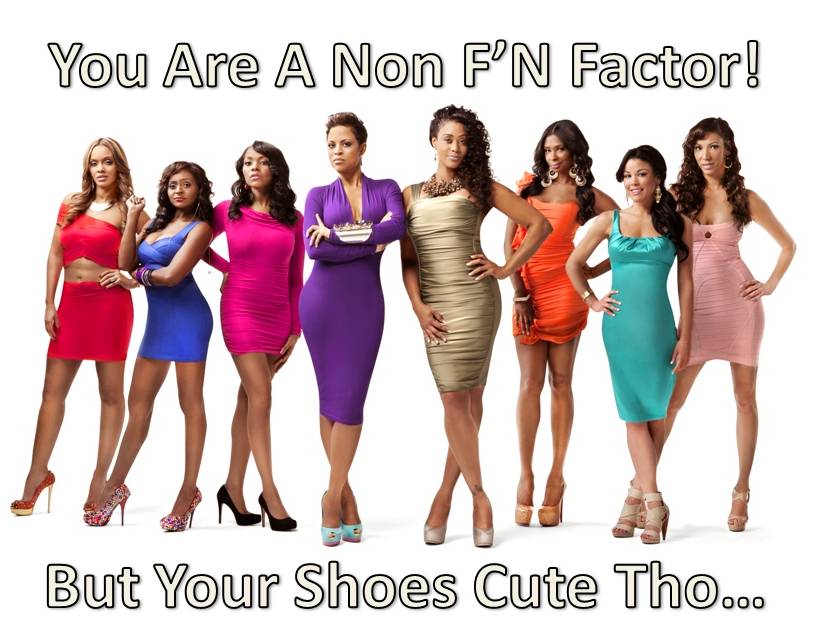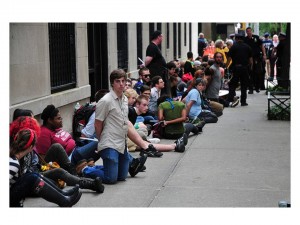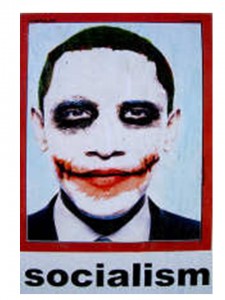 The history of African-American women in America is one in which there has been much joy and a lot of pain. It is not easy being a woman in this society, particularly an African-American woman because they have three strikes against them. They are women, strike one. They belong to a class that is associated with poverty and welfare, strike two. And most importantly, they are black, strike three. That is the ultimate strike, the solidifying thread that entangles them in a White
The history of African-American women in America is one in which there has been much joy and a lot of pain. It is not easy being a woman in this society, particularly an African-American woman because they have three strikes against them. They are women, strike one. They belong to a class that is associated with poverty and welfare, strike two. And most importantly, they are black, strike three. That is the ultimate strike, the solidifying thread that entangles them in a White
That is why it is so ironic that VH1, a major cable network channel, has seen its ratings skyrocket since its debut of reality televisions marketed towards Black women. In an article on The Grio’s website from April 2011, VH1’s VP of original programming and production, Jeff Olde said:supremacist society that was not created for the advancement of women period; especially African-American women.
“We constantly have to evolve and tell our audience different stories. I love that we’ve been able to get more diverse with our audience by — in large part — attracting African-American women to the network. We got them in the door with some shows, and now I’m excited about where we’re going and how we’re telling them different kinds of stories.”
And it has worked. Due to the success of reality shows such as Love & Hip Hop Atlanta and Basketball Wives, Viacom, the parent company of VH1 has seen its ratings go up by 20 percent in prime-time among adults 18-49 in 2014 — the biggest rise among the top 25 basic cable networks. However, the shows on VH1 geared towards the African-American female audience are nothing more than modern day minstrel shows showcasing Black women displaying stereotypical behavior such as fighting, cussing, and hypersexuality. Sapphire, Jezebel, and the latest, Gold-Digger for a new generation. One cannot help but wonder if this was a plan. Since the election of President Obama, the first Black president who happens to be married to a Black woman, there has been a concerted effort by the mass media to portray African-American women in a negative light. Examples include the rise of Black reality television, articles about how single African-American women’s net worth is listed as $5 dollars, and depending on the news source, African-American women either has the most children out of wedlock or abortions. On a regular basis, the American public is assailed with these negative stories and shows about African-American women which in turn make them become subject to stereotypes as the images presented become fixed mental images and are exaggerated and applied to all Black women as a whole.
Whites, who are the dominant culture, watching these shows, grow to believe that all Black women are less intelligent, more violent, and generally less human. Additionally, Black women themselves can develop reactions that are turned inward and create a sense of hopelessness, despair, and self doubt that can lead into even more sociological problems in the form of alcoholism, drug abuse, aggression, and crime. Thus, the images presented by reality television help contribute to this vicious cycle and offers little, if any solutions to building the self-esteem of Black women.
The only solution to the problem of these negative portrayals of Black women on reality television is to boycott the advertisers, not the producers. Black women need to realize how powerful they are and take a stance to demand that these images be taken off television. The advertising industry is a billion dollar a year industry and if advertisers refuse to run their commercials during these shows, producers of these shows will be left with a limited number of options to present negative images of African American women. Television has a wonderful opportunity to present shows that celebrates and reflects the strength and tenacity of African-American women instead of stereotypical portrayals and that tells stories about the lives of the African-American women as human beings, not just as pieces of meat and a source of unlimited funds for greedy network executives.
White Supremacy, Reality TV, and The African-American Woman,



